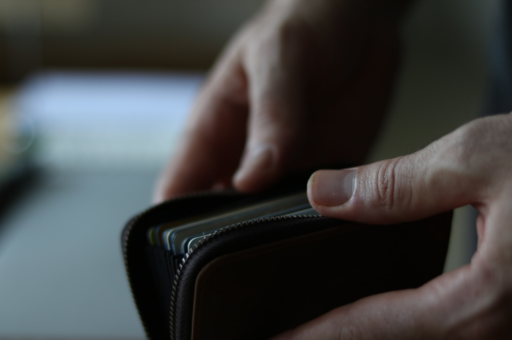
How to spot the red flags of financial abuse
Nov 27, 2023
Financial abuse, also known as economic abuse, is a widespread issue in Australian society. But while verbal, physical and sexual assaults are more widely recognised as domestic abuse, financial abuse operates as a subtler – yet equally damaging – form of intimate partner violence.
We spoke with Carolyn Robinson, founder and managing director of Beyond DV, to learn more about this silent weapon in domestic abuse.
What is financial abuse?
Financial abuse is a subtle yet insidious form of control that strips away a person’s access to money.
“It’s about controlling and manipulating financial decisions,” Carolyn says. “The abuser is the one to decide everything, from where to buy a home, what type of car to buy, where to send the children to school, and how much that education should cost.”
In some cases, financial abuse manifests through providing a meager allowance, thereby restricting a woman’s financial independence.
“This could be providing a credit card with an intentionally low balance to really control how much spending they can do,” Carolyn says.
She points out that when any spending occurs, there’s usually an interrogation about what was spent, when it was spent, and why, “creating an environment of constant scrutiny.”
This control can also extend to the workforce, with some women being prevented from working under the guise of encouraging a traditional family role, while others are pushed to work excessively without reaping the benefits. In either scenario, financial independence is lost, leaving the victims trapped within an abusive dynamic.
“Financial abuse is one of the worst forms of coercive control,” Carolyn says. “Yes, telling somebody what they can and can't wear is control, but when you are also controlling the money that they need to live, it really is next level.”
The red flags of financial abuse
Identifying financial abuse can be a challenge, as it tends to create a sense of isolation for victims, who feel dependent on their abuser. Like all forms of domestic and family violence, it is important to recognise the red flags. Some indicators may include:
- Controlled access to bank accounts with only a limited amount of money for spending
- Closely monitored spending, with regular interrogations about the victim’s purchases
- Hidden funds that are transferred into accounts inaccessible to the victim
- Forced co-signing of loans or credit cards, with the abuser accumulating debts in the victim’s name
- Threats of cutting off financial support as a means of control
If you suspect someone may be a victim of financial abuse, they may exhibit various red flags, such as:
- Avoiding social activities that involve spending money
- Constantly turning down invitations for coffee or outings
- Neglecting to replace clothing and shoes
- Visible distress or hesitation when financial matters arise
- Uttering phrases like “I’ll have to check with my partner about that…”
Read next: Learn to spot the red flags of domestic violence and coercive control.
How prevalent is financial abuse in Australia?
According to a study by Deloitte and the Commonwealth Bank, over 623,000 women and men were subjected to financial abuse by a current or former intimate partner across Australia in 2020 alone. That’s equivalent to more than 43 female and 27 male victims every hour of 2020.
Carolyn says most people would be surprised to know that financial abuse occurs in households across all income brackets.
“It’s not just confined to low-income households,” she explains. “There are also incidents in households that have very high income. It’s surprising to see the level of financial control that some of these women in high socioeconomic areas have been subjected to.”
The impact of financial abuse
Financial abuse is incredibly damaging, creating an inescapable web for women trying to leave.
"We find that when a woman wants to leave and is being strongly controlled through finances, she feels trapped,” Carolyn says. “Even if she wanted to leave, how is she going to pay for a motel or a place to take her family?”
It’s this financial constraint that becomes a barrier for keeping women in abusive relationships.
“Many women in these situations don’t even know their account details,” Carolyn says. “Sometimes they have no knowledge of existing accounts. We’ve seen some women who don’t even know their own tax file number.”
The repercussions of financial abuse can be long-lasting, with Carolyn reporting instances of huge debts being racked up on credit cards, child support being withheld, and protracted legal proceedings that go on for much longer than necessary, burdening survivors with legal bills.
“We have also seen so many women have their superannuation absolutely decimated,” she says.
Carolyn says victims often face a difficult choice between enduring their current situation and facing the potential hardships of poverty.
“You can see why they just decide to stay in the situation they’re in,” she says. “Women either stay in abusive relationships or risk poverty. Which one is it?”
Knowledge is power: The importance of financial literacy
Carolyn says one of the biggest challenges women face when trying to regain financial independence is navigating financial institutions, especially for those with limited banking experience.
“A lot of them don’t have financial literacy,” she says. “They’ve never had the freedom to choose how to use money to live the life they want.
“We really do a lot of work around basic budgeting, how to use credit, and linking them with banking products specifically designed to help women impacted by domestic and family violence."
Beyond DV provides extensive support, offering a financial counselor and collaborating with institutions like CommBank, giving women the tools to make independent financial decisions.
"We offer a lot of training programs to women,” Carolyn says. “Some are government-funded. And we actively collaborate with compassionate employers to provide pathways for these women back into the workplace. We’ve placed our women into some wonderful work placements and jobs, which we’re very proud of.
“Ultimately, what makes Beyond DV unique is the wraparound support we offer, whether these women are studying, returning to work, or pursuing other goals.
“Having financial literacy gives them the tools to go out and make money, and make sound decisions about how to spend that money to achieve their goals.
“We recently celebrated the graduation of 50 women from our training courses. To hear them talk about what they've been doing since then – it's just been wonderful.”
Getting help and support
If you feel that you’re experiencing financial abuse, contact 1800RESPECT or DVConnect. They are trained to look at all aspects of abuse, can identify whether or not your situation is abusive, and can point you in the right direction.
Organisations such as Variety also have financial counselors available to help you get your financial affairs in order before you leave.
Beyond DV also operates a Hope Hub at Westfield Carindale. It’s a public space open seven days a week for community members concerned about domestic violence and mental health.
“We have trained staff who engage with visitors, offering insights into power and control dynamics, providing warm referrals to essential services. We have a lot of lightbulb moments in our Hope Hub, where people from all over Brisbane come in, and leave with a plan.”
For Carolyn, the significance of awareness and early intervention cannot be overstated.
“There’s nothing stopping you from accessing financial counseling, even before leaving a relationship, just to get an understanding of what your financial circumstances are,” she says. “You don’t know what you don’t know.”
To search for a service near you, use The Handy Guide, an information and service directory for Queensland women in need.




